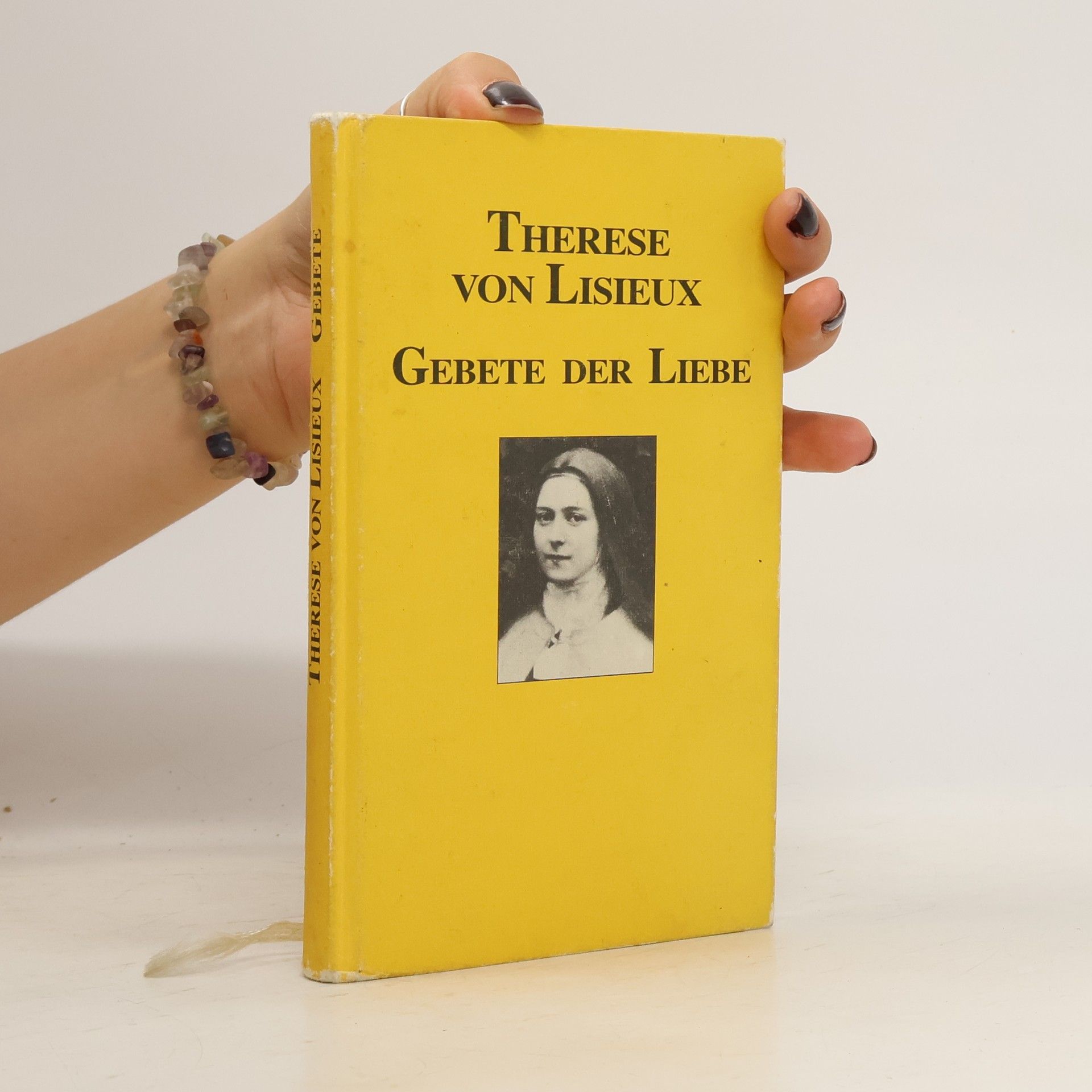A deep, insightful and poetic selection of beautifully illustrated texts from the popular saint Thérèse of Lisieux for the celebration of her 150th anniversary "Can you imagine, for doing little things with great love, the Church is making her a Doctor, like St. Augustine and the big St. Teresa! It is just like Jesus said in the Gospel to the one who was seated in the lowest place: 'Friend, come up higher.'" --Mother Teresa of Calcutta Discover the powerful spiritual path of love set by one of the most popular religious figures of modern days: Saint Thérèse of Lisieux, affectionately nicknamed "The Little Flower." In this year where we celebrate her 150th anniversary, discover the "Little Way" of love as lived and revealed by Thérèse of Lisieux in her own words.
Therese von Lisieux Knihy
Svatá Terezie z Lisieux, známá také jako 'Malý kvítek Ježíšův', byla francouzská karmelitánka. Její spisy, včetně duchovní autobiografie, dopisů a básní, odhalují hlubokou spiritualitu a cestu plnou důvěry a lásky. Přestože si přála zůstat neznámá, její myšlenky a svědectví o 'malé cestě' k Bohu inspirovaly miliony lidí po celém světě. Její dílo je svědectvím o hrdinství v obyčejném životě a radikálním potvrzení hodnoty každodenního bytí.






«Unser Zeitalter der Ausgrabungen, das den Dingen begegnen will wie sie sind, hat nun auch die Züge Thereses vom Kinde Jesus aus einem wahren Grab von Schminke gehoben; als die entstellenden Schichten wegfielen, trat, wie nicht anders zu erwarten war, das Gnadenwunder von Lisieux mit dem ganzen Glanz und der schlichten Evidenz des Ursprünglichen zutage. Es ist zunächst eine Sache der Atmosphäre: wie wenn man aus einer sorgföltig verschlossenen ‹guten Stube› in den Wald hinaus tritt und man weiß plötzlich was frische Luuft heißt und was Atmen, und man fühlt sich so dankbar, daß man die Frage, warum einem dieses Einfache solange vorenthalten wurde, auf sich beruhen läßt. Was aus unbegreiflicher Überkleisterung befreit uns entgegentritt, ist etwas Jugendfrisches, Spontanes, erschreckend Hüllenloses, das sich so sorgenfrei nur geben kann, weil es sich unangrifbar geborgen weiß in den Schleiern der Gnade.»
